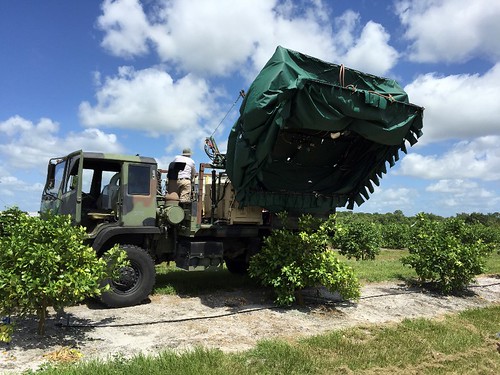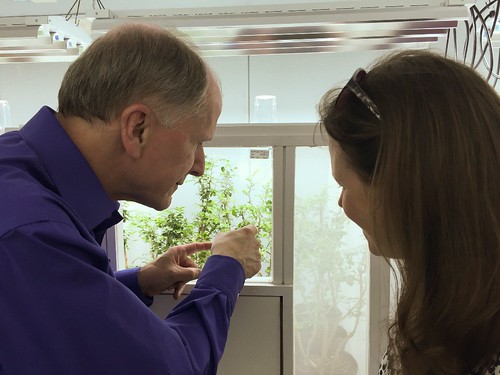
The Florida citrus industry is under siege and the invader is a tiny bug called the Asian citrus psyllid (ACP). The ACP spreads a disease known as Huanglongbing (HLB) or citrus greening, and together they are destroying groves that have been cultivated by families for generations.
But all is not lost. USDA’s Animal and Plant Health Inspection Service (APHIS) is working closely with State and Federal partners such as the Agricultural Research Service and National Institute of Food and Agriculture, as well as State departments of agriculture and the citrus industry in Florida, California, Arizona and Texas to develop short-term solutions to help protect groves while researchers focus on longer-term projects that may one day put an end to this devastating pest and disease combo.
Together, this group forms a Multi-Agency Coordination Group, or MAC, group. The MAC was initiated by Agriculture Secretary Tom Vilsack who heard the call for short-term solutions to HLB in 2013 and established a new, unified emergency response framework to better position the Department to respond in a more agile, concerted, and direct way to both the immediate and long-term needs of the citrus industry.
As part of the MAC initiative, APHIS has received more than $25 million over the past three years to fund more than 30 shovel-ready projects carried out by State cooperators, universities, and private companies to produce tangible results and practical tools in the fight against the ACP and citrus greening.

I recently spent two days in Florida to see firsthand how our collaborative efforts are helping producers. We saw demonstrations by canine detector dogs that can sniff out citrus greening before symptoms are physically present enabling producers to make decisions about how to best manage their groves. We saw how treating trees with heat, known as thermotherapy, can suppress citrus greening and help diseased trees return to productivity. MAC funding helped build the first thermotherapy truck and now several producers and a private company have started investing in their own thermotherapy machines.
We also toured the Florida Department of Agriculture and Consumer Services (FDACS) Biological Control Laboratory in Dundee where last year, with support from the MAC, they reared more than 2.3 million Tamarixia radiata—beneficial, miniature wasps that are released to attack and reduce ACP populations in areas where agricultural and residential environments overlap.

These are just a few of the promising innovations we had the opportunity to see, but driving past countless abandoned groves served as a sobering reminder of what the industry is up against. Abandoned groves harbor disease and threaten nearby productive groves. With support from the MAC, FDACS is working to remove these reservoirs of disease thereby protecting the livelihoods of neighboring producers.
The innovations underway in Florida may one day help citrus producers in California, Arizona and Texas. All three States are dealing with the ACP, and Texas also has citrus greening in its groves, but so far producers have not seen lower yields. Still, they know all too well what’s at stake. A decade ago, Florida harvested 250 million boxes of citrus a year, but in 2016 the industry is only expecting to harvest about 68 million boxes. With support from the MAC and our continued commitment to collaboration and innovation, my hope is that we will reverse this trend and Florida citrus production will rise.

